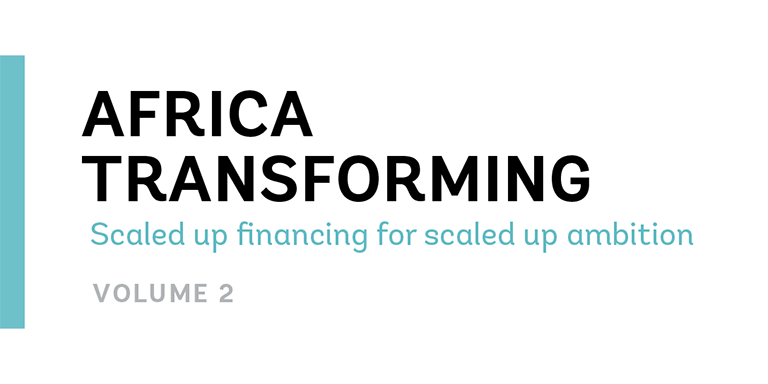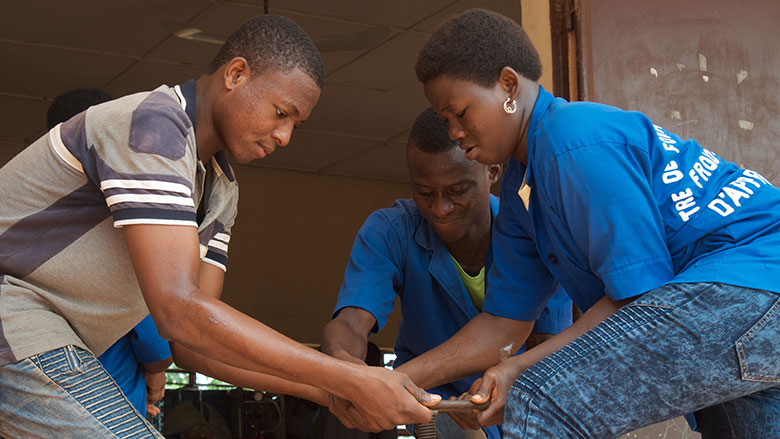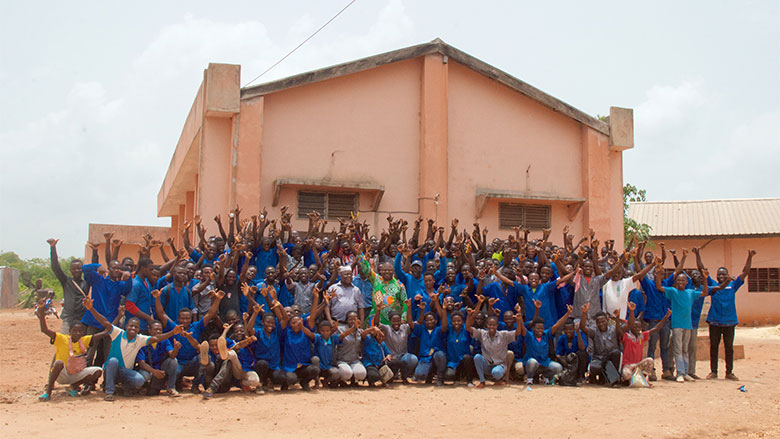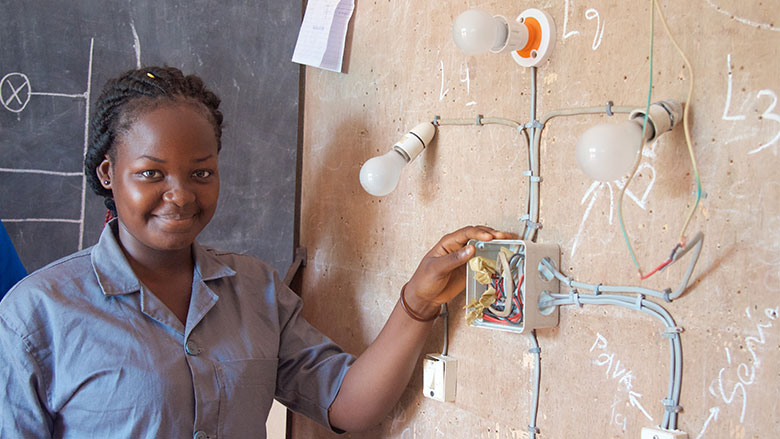
“I am the only girl on the construction site, but I do the jobs assigned to me just like the boys. I love what I do,” she affirms, brimming with confidence.
Hounkanrin is a school dropout who now boards at the Training and Apprenticeship Center in the commune of Pahou (Centre de formation et d’apprentissage de Pahou). She and some 30 other girls at the center are training for so-called men’s jobs, braving the social norms.
The center is one of 73 vocational training institutions across Benin supported by the Youth Employment Project financed by the World Bank. With a funding package of $35 million, the project has already helped some 3,500 young people, half of them girls, obtain their professional qualification certificate.

Training for job opportunities
Chantal Médégnon, who holds a certificate in electricity, construction, and industry, saw vocational training as a path toward better employment opportunities. When she left school at the 8th grade, she determined hairdressing and dressmaking were oversubscribed and not to her liking.
“But in construction you are always in demand and can go from site to site,” she explains.
While their numbers are small compared to boys, Benin’s girls are gaining ground and performing well in vocational training in fields like automobile repair, electricity, cooling and air conditioning, welding, and building construction.
“We want to end the social norms that combine to discourage girls from pursuing these occupations traditionally exercised by men. The model offered by those who are already trained encourages us to urge women to have confidence in themselves and to make the most of their potential,” explains Maxime Sogbossi, Project Coordinator.

Building business skills and more
Besides apprenticeships, the project provides small grants to help young people strengthen their business skills and enter the job market. Already 7,500 young people, half of them girls, have each received CFAF 200,000 (around $370) for this purpose. Many are girls trained in traditionally male occupations. To further expand their ranks, the project is offering technical and micro-entrepreneurship training in non-traditional trades for 500 girls. It also is providing start-up grants to help them launch and expand their activities.
Momentum continues with three new projects to be financed under IDA18. The Education for Employment Project will build on activities by supporting more young people, including girls, in acquiring the skills needed in priority economic sectors where there is ever-increasing demand for skilled labor. The Youth Inclusion Project will focus on services to promote the social and economic inclusion of young people in various communities. Benin will also join the Sahel Women Empowerment and Demographic Dividend Project, which, among other support, helps girls gain access to scientific and technological subjects and priority economic sectors.

